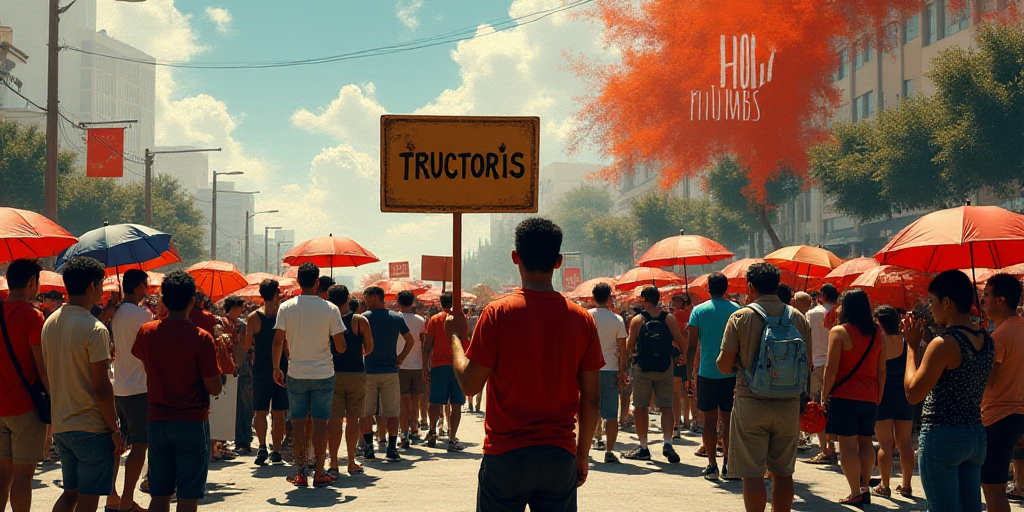Background and Relevance
On Sunday, Mexican voice actors and dubbing artists gathered at the Monument to the Revolution in Mexico City to protest for regulation protecting their voices from being cloned using AI without their consent.
The rise of artificial intelligence (AI) has been a significant factor in recent strikes by Hollywood actors and screenwriters, who feared studios would use this technology to replace their jobs.
Lili Barba, the 52-year-old actress and president of the Mexican Association of Commercial Voice Actors, emphasized the importance of using human voices from living professionals in audiovisual content displayed in Mexico.
Barba highlighted a controversial incident where the Mexican National Electoral Institute (INE) used the voice of late dubbing artist José Lavat in a video thanking voters, despite Lavat’s death in 2018. Lavat was famous for narrating the Latin American version of “Dragon Ball Z” and dubbing stars like Robert De Niro and Al Pacino.
Concerns Over AI-Driven Dubbing
In March, Amazon’s streaming service Prime Video announced trials of an AI-assisted dubbing system. YouTube, another platform, has also expanded its automated dubbing capabilities by the end of 2024.
However, professional voice actors still hold an advantage, according to Mario Heras, the director of dubbing for video games.
Heras believes that AI has yet to replicate the nuances and life in dialogue, stating that “the human factor defends us in the rebellion against machines.”
Key Questions and Answers
- What is the main concern of Mexican voice actors and dubbing artists? They are demanding regulation to protect their voices from being cloned using AI without their consent.
- Why is this issue relevant? The rise of AI in the entertainment industry has raised concerns about job displacement for voice actors and dubbing artists, as studios might use AI to replace their roles.
- Who is Lili Barba, and why is she significant in this context? Lili Barba is a prominent Mexican actress and the president of the Mexican Association of Commercial Voice Actors. She advocates for using human voices from living professionals in audiovisual content.
- What is the controversy surrounding José Lavat’s voice? The Mexican National Electoral Institute (INE) used Lavat’s voice in a video without seeking permission from his family, which raised concerns about unauthorized AI-driven voice cloning.
- How do professional voice actors view AI-driven dubbing systems? While acknowledging the advancements in AI, professional voice actors like Mario Heras believe that human nuances and life in dialogue cannot be replicated by machines.






